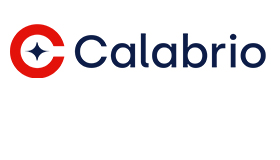Calabrio explores how performance transparency is reshaping employee engagement, revealing five key ways it builds trust, accountability, and long-term business success.
The modern workplace has undergone major shifts over the past decade-from flexible work arrangements to a stronger focus on work-life balance.
But one priority that’s gaining traction, but is still often overlooked, is the growing demand for transparency in the workplace-and the wide-reaching benefits it brings.
According to a study by Slack, over 80% of workers want more insight into company decision-making, and 87% of job seekers actively seek transparency in future employers.
This growing demand for transparency in the workplace isn’t just about sharing company financials or high-level strategy-it’s also about transparency around performance.
Because when employees have clear visibility into their own metrics and progress toward goals, it creates a culture of open communication and a foundation of trust and empowerment that can transform the entire organization.
5 Key Benefits of Performance Transparency
But what exactly are the benefits of transparency in the workplace, for both organizations and the employee experience?
The impact of a more transparent workplace can be profound, creating a closed loop that benefits both the organization and the individual.
By demystifying performance and grounding it in clear, accessible data, it shifts the dynamic from top-down judgment to collaborative development, and helps drive these far-reaching benefits affecting the organization and the employee experience.
1. Drives Constructive Coaching and Feedback
With a comprehensive Workforce Engagement Management (WEM) suite that includes AI-fueled performance management, driven by workforce and conversation intelligence, managers can use data-driven insights to deliver personalized, performance-based coaching.
Metrics provide clarity around areas of strength and growth, while shaping targeted development plans that align with individual and organizational goals.
2. Reinforces Trust in the Evaluation Process
Transparency builds trust. When employees know they’re being evaluated based on clear, unbiased metrics, they feel more secure and respected.
Timely dashboards help agents understand their performance on an ongoing basis, removing surprises from reviews and creating a sense of fairness.
3. Empowers Agents Through Visibility
Access to individual performance metrics doesn’t just inform, it empowers. When employees can see how they’re doing, they gain agency and confidence.
Transparency encourages continuous learning and motivates agents to develop new skills, especially when they understand how growth can advance their careers.
4. Boosts Profitability Through Engagement
Engaged employees deliver better service, and better service drives profit. Studies consistently show that happy, well-supported agents translate into improved customer satisfaction and loyalty. When employees understand how their performance impacts the business, they’re more likely to stay invested.
5. Promotes Self-Management and Accountability
With an embedded performance management solution as part of your WEM software, agents don’t have to wait for formal reviews to manage their development.
They can monitor their metrics in real time, compare them to goals, and make adjustments proactively. For instance, if an agent notices a drop in call resolution rates, they can course-correct or seek support right away.
This not only empowers agents but also frees managers to focus on strategic coaching rather than reactive oversight.
Transparency Is the New Engagement Driver
In today’s employee-first workplace, transparency is more than a buzzword, it’s a strategic advantage. When organizations embrace performance visibility through a comprehensive WEM platform with AI-fuelled performance management, built-in intelligence, and automation, they build cultures rooted in trust, accountability, and continuous growth.
Agents become more engaged, motivated, and loyal—transforming from metrics-watchers into mission-driven contributors.
This blog post has been re-published by kind permission of Calabrio – View the Original Article
For more information about Calabrio - visit the Calabrio Website
Call Centre Helper is not responsible for the content of these guest blog posts. The opinions expressed in this article are those of the author, and do not necessarily reflect those of Call Centre Helper.
Author: Calabrio
Reviewed by: Robyn Coppell
Published On: 29th Aug 2025
Read more about - Guest Blogs, Calabrio






 The digital foundation of a customer-centric contact centre, the Calabrio ONE workforce performance suite helps enrich and understand human interactions, empowering contact centres as a brand guardian. Calabrio ONE unites workforce optimisation (WFO), agent engagement, and business intelligence solutions into a cloud-native, fully integrated suite.
The digital foundation of a customer-centric contact centre, the Calabrio ONE workforce performance suite helps enrich and understand human interactions, empowering contact centres as a brand guardian. Calabrio ONE unites workforce optimisation (WFO), agent engagement, and business intelligence solutions into a cloud-native, fully integrated suite. 








